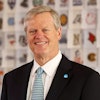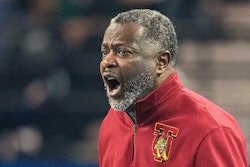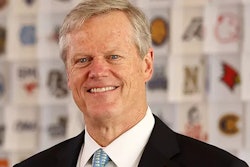On July 9, the Central Intercollegiate Athletic Association (CIAA), a Division II conference comprising 13 historically Black colleges and universities (HBCUs), announced that NCAA sports competition sponsored by the conference will not take place during the fall of 2020. This decision was made due to concerns associated with COVID-19. All 13 athletic directors were unanimous in their decision.
“This is a decision that was made to protect the safety and wellbeing of everybody involved,” Clyde Doughty Jr., vice president of intercollegiate athletics and recreation at Bowie State University and president of the CIAA athletic directors association, told Diverse.
The 13 institutions of the CIAA span five states. In any given school year, the conference produces 14 championships. During the fall semester, athletic scholarships will be honored and all current student-athletes will be able to participate in classes, whether hybrid, on campus or online. There is an ongoing discussion among the member institutions about moving some fall sports to the spring, such as playing a conference-only football schedule.
In the aftermath of the announcement, the CIAA continues to work on how to keep alumni and fans engaged and excited about their institutions.
“Over the last couple of years, we’ve done a really good job in engaging through our social media platforms,” CIAA commissioner Jacqie McWilliams told Diverse. “We’re going to evolve ourselves to think differently about how we connect with our membership, but also with our fans and alumni.”
For instance, CIAA hosted a virtual party the weekend of Juneteenth that people were enthusiastic about. McWilliams anticipates continuing to involve member institutions and sponsors in similarly creative ways. A meeting with coaches is scheduled for this week to get a sense of what they’re interested in doing, and next week, student-athletes will discuss what they want to do as an impact community. Whatever is done, she said, will reflect the CIAA’s three pillars: leadership, tradition and community.
This week there will be a mental health symposium with the faculty athletic representatives to make sure the needs of the student-athletes at the member institutions are being met. A recent survey, in which about 500 student-athletes participated, showed that mental health was a priority.














